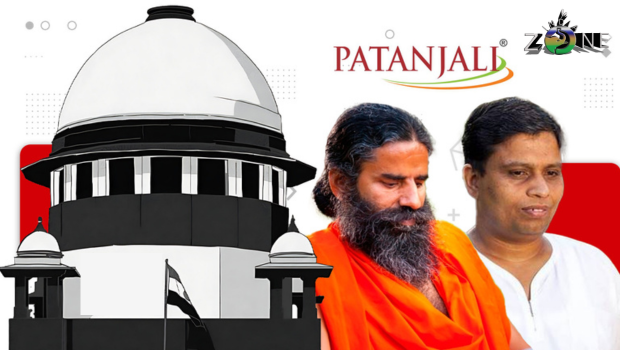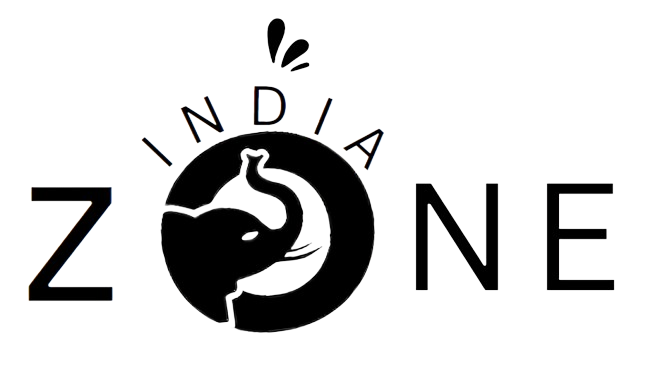
Briefly
The Supreme Court mandates
- Ramdev’s personal appearance.
- Acharya Balkrishna, the managing director of Patanjali Ayurved, also requested to speak.
- obeys the warning of contempt sent to Patanjali last month
On Tuesday, the Supreme Court ordered yoga master Baba Ramdev to personally address Patanjali Ayurved’s “misleading ads” in a fortnight. Acharya Balkrishna, the managing director of Patanjali Ayurved, has also been invited to speak. The Supreme Court banned Patanjali Ayurved on February 27 from running advertisements for its medications, which treat a variety of conditions, including obesity, diabetes, rheumatoid arthritis, and high blood pressure. It served a notice of contempt to Acharya Balkrishna, the managing director of Patanjali Ayurved.
The Bench issued an order today requesting Acharya Balakrishna’s personal appearance after learning that the reply to the contempt notice had not been filed. In addition, the court ordered Baba Ramdev’s personal appearance in addition to sending him a contempt notice. The Court noted:
The Respondent No. 5 (Patanjali) and its Managing Director were given a notice to show cause on the last day of the hearing, asking them to explain why contempt of court proceedings should not be brought against them. They were given two weeks to respond, but their response was not recorded. Given the above facts and circumstances, it is deemed appropriate to order the MD of Resp 5 to appear.
the proposed contemnor/ managing director of respondent no. 5 shall remain present on the next date of hearing along with the newly impleaded proposed contemnor Acharya Ramdev . Senior Advocate Mukul Rohatgi represented Patanjali in the courtroom exchange. At the outset of the hearing, Justice Kohli inquired, “Where is the reply?” In response, Rohatgi said that the response was too brief and couldn’t be filed.
Judge Kohli shot back, stating:
“We have taken it very seriously, so that is not good enough for us.”
There will be directives and repercussions if you choose not to file.
Consequently, after an extended deadline of two weeks rather than one week was granted, Justice Kohli also inquired as to why the reply had not been filed.
Rohtagi: My lords, the client and I had a conversation, but he wasn’t [inaudible]. Justice Amanullah: You were pressed for time and desired a quicker resolution.
Justice Kohli:…we will now order your client to come into court on the following date.
The Indian Medical Association had filed a writ case, which the court was hearing. Concerns about the ongoing dissemination of false information about allopathy and the contemporary medical system were expressed in the petition. Additionally, it said that false promises regarding the ability to cure certain diseases are made in Patanjali’s deceptive marketing, which denigrate allopathy.
Justice Kohli:…we will now order your client to come into court on the following date.
The Indian Medical Association had filed a writ case, which the court waAIn light of this, the IMA aimed to order the Central Consumer Protection Authority of India (CCPA), the Advertising Standards Council of India (ASCI), and the Center to take action against such campaigns and commercials that denigrate the Allopathic system in order to promote the Ayush system.
It is important to note that the Court voiced its dissatisfaction with the Union Government for failing to act under the Drugs and Magic Remedies (Objections) Act during the most recent proceedings on February 27. s hearing.
Concerns about the ongoing dissemination of false information about allopathy and the contemporary medical system were expressed in the petition. Additionally, it said that false promises regarding the ability to cure certain diseases are made in Patanjali’s deceptive marketing, which denigrate allopathy.
Justice Kohli:…we will now order your client to come into court on the following date.
The Indian Medical Association had filed a writ case, which the court waAIn light of this, the IMA aimed to order the Central Consumer Protection Authority of India (CCPA), the Advertising Standards Council of India (ASCI), and the Center to take action against such campaigns and commercials that denigrate the Allopathic system in order to promote the Ayush system.
It is important to note that the Court voiced its dissatisfaction with the Union Government for failing to act under the Drugs and Magic Remedies (Objections) Act during the most recent proceedings on February 27. s hearing.
Concerns about the ongoing dissemination of false information about allopathy and the contemporary medical system were expressed in the petition. Additionally, it said that false promises regarding the ability to cure certain diseases are made in Patanjali’s deceptive marketing, which denigrate allopathy.
(Objectionable commercials) Act of 1954 in reference to Patanjali Ayurvedic commercials that purport to heal a number of illnesses.
As a result, the Court clearly stated in the order that the Union must provide a thorough affidavit outlining the actions performed in accordance with the previous ruling.(Objectionable commercials) Act of 1954 in reference to Patanjali Ayurvedic commercials that purport to heal a number of illnesses. As a result, the Court clearly stated in the order that the Union must provide a thorough affidavit outlining the actions performed in accordance with the previous ruling.
Judge Kohli shot back, stating: “We have taken it very seriously, so that is not good enough for us.” There will be directives and repercussions if you choose not to file.
Consequently, after an extended deadline of two weeks rather than one week was granted, Justice Kohli also inquired as to why the reply had not been filed.
Rohtagi: “My lords, the client and I had a discussion. He was not [inaudible].”
Judge Amanullah: You were pressed for time and desired a shorter duration.
Justice Kohli:…we will now order your client to come into court on the following date.
The Indian Medical Association had filed a writ case, which the court was hearing. Concerns about the ongoing dissemination of false information about allopathy and the contemporary medical system were expressed in the petition. Additionally, it said that false promises regarding the ability to cure certain diseases are made in Patanjali’s deceptive marketing, which denigrate allopathy.
In light of this, the IMA attempted to order the Central Consumer Protection Authority of India (CCPA), the Advertising Standards Council of India (ASCI), and the Center to take action against such campaigns and commercials that denigrate the Allopathic system in order to promote the Ayush system.
It is important to note that the Court expressed its displeasure with the Union Government during the most recent proceedings on February 27th, stating that the advertisements of Patanjali Ayurveda, which purported to cure various ailments, were in violation of the Drugs and Magic Remedies (Objectionable Advertisements) Act of 1954.
As a result, the Court clearly stated in the order that the Union must provide a thorough affidavit outlining the actions performed in accordance with the previous ruling.
But ASG K.M. Nataraj informed the Bench that the affidavit was filed yesterday when the Court inquired about it today. Nevertheless, it wasn’t documented. “Why did you file it one day earlier?” Justice Kohli asked the ASG in an oral question.”
Additionally, Ld. ASG, representing the Union of India, told the court that the Union of India’s extra affidavit was insufficient and that it was allowed to file a new one while dropping the previous one. The Union was given permission to submit a new affidavit outlining the actions it took in accordance with the directive issued on November 21, 2023. Moreover, the aforementioned affidavit is not on file. That’s what Ld. says. ASG that the affidavit was only filed yesterday at 5:45 p.m., per his orders. Understandably, the aforementioned affidavit is not on file.
Given the above context, the Court gave the Union of India one final chance to ensure that the filed counter-affidavit was retained on file and that copies were sent to all parties involved.
Prior to this, on November 21, 2023, the Court chastised Patanjali Ayurved for continuing to spread deceptive statements and ads criticising contemporary medical procedures. Judge Amanullah issued a severe warning, threatening to fine the offending parties Rs 1 crore if the advertisements continued. In response, Patanjali’s legal representative promised the court that they would not run similar advertisements in the future and would use prudence while making public pronouncements. This guarantee was noted by the court in its ruling.
Nevertheless, Patanjali broke its promise by carrying on with its deceptive advertising in spite of this initiative. As a result, the Court served a notice of contempt on Patanjali Ayurved and the Managing Director, Acharya Balakrishna.
Furthermore, Patanjali Ayurved was barred by the Court from promoting goods that treat ailments listed in the Drugs and Magic Remedies (Objectionable Advertisements) Act, 1954. Furthermore, Patanjali was advised not to criticize any medical system in particular.
In a writ case, the Indian Medical Association (IMA) voiced its worries about what it called a systematic propagation of false material that denigrated allopathy. The petition drew attention to Patanjali’s deceptive advertisements, which purportedly discredited allopathic treatment and made exaggerated claims about healing certain illnesses.
A half-page advertising headlined “MISCONCEPTIONS SPREAD BY ALLOPATHY: SAVE YOURSELF AND THE COUNTRY FROM THE MISCONCEPTIONS SPREAD BY PHARMA AND MEDICAL INDUSTRY” that was published on July 10, 2022, was referenced in the petition.
Commercial organizations are free to advertise their goods, but Patanjali’s unsubstantiated claims are against legislation including the Consumer Protection Act of 2019 and the Drugs & Other Magic Remedies Act of 1954, according to the IMA.
The petition also drew attention to contentious remarks made by Patanjali-affiliated Swami Ramdev, including disparaging remarks about allopathy and baseless allegations regarding mortality brought on by allopathic medications during the COVID-19 pandemic. Patanjali faced accusations of inciting misinformation on COVID-19 vaccinations and exacerbating vaccine reluctance.
The IMA underlined that Patanjali persisted in its purported violations with impunity in spite of an agreement between the Ministry of AYUSH and the ASCI for monitoring deceptive ads of AYUSH drugs.
Throughout the hearing, the Court made it clear that its goal was to successfully address the issue of deceptive medical ads rather than get into a “Allopathy v. Ayurveda” discussion.
The Citizenship Amendment Act (CAA) 2019 and the Citizenship Amendment Rules 2024 are two projects that the Supreme Court is scheduled to consider today. The bench is led by Chief Justice of India DY Chandrachud and consists of Justices Manoj Misra and JB Pardiwala. 237 writ petitions contesting the CAA have been filed; they were first filed in 2019 and were last presented before the Court on October 31, 2022. This hearing comes after their filing.
The filing of these applications was prompted by the notification that the Union Government issued on March 11, 2024, regarding the Citizenship Amendment Rules 2024. These regulations set up committees at the State and Union Territory levels to handle citizenship applications, and they also provide as a framework for carrying out the CAA.
Notably, the Indian Union Muslim League (IUML), Democratic Youth Front of India (DYFI), All Assam Students Union, as well as political figures from Assam like Debrabata Saika and Abdul Khaleque, AIMIM leader Asaduddin Owaisi, and the Socialist Democratic Party of India, are among the applicants requesting to keep the Act and Rules in place.












